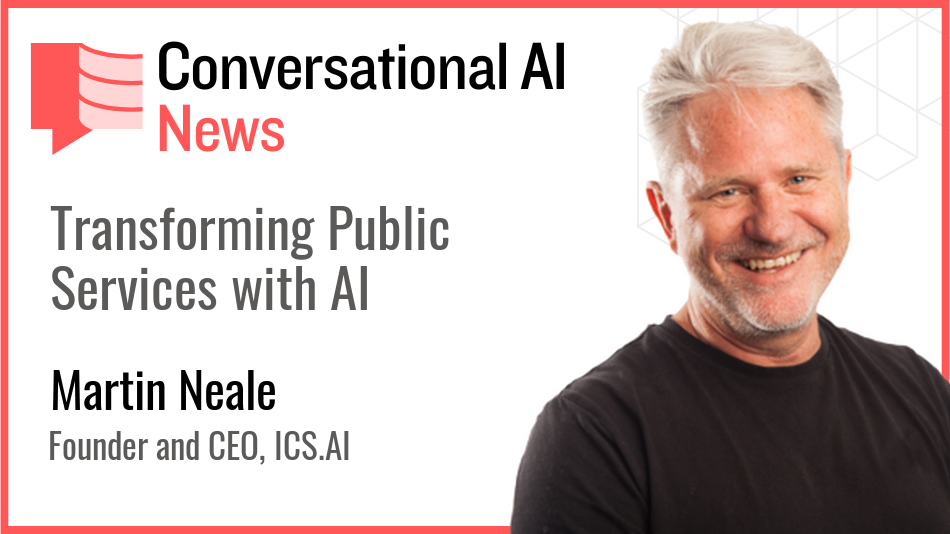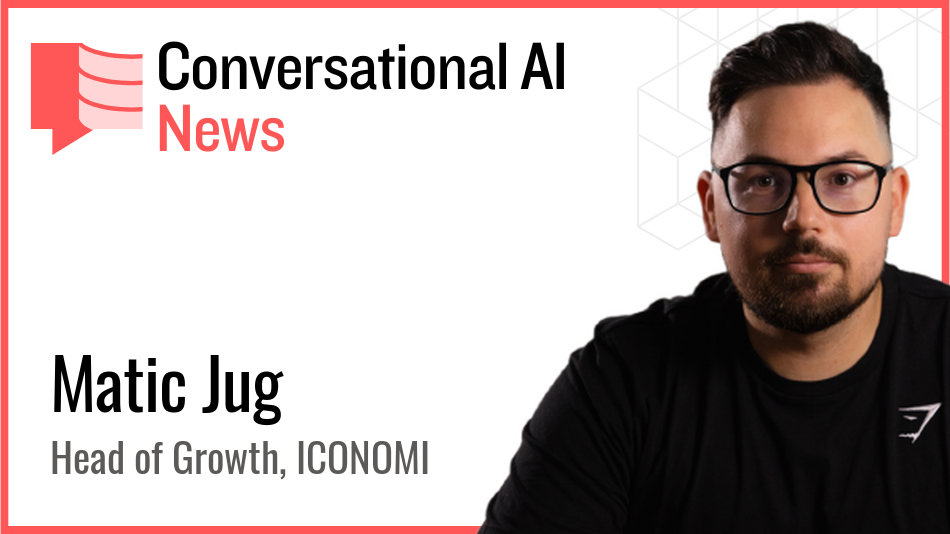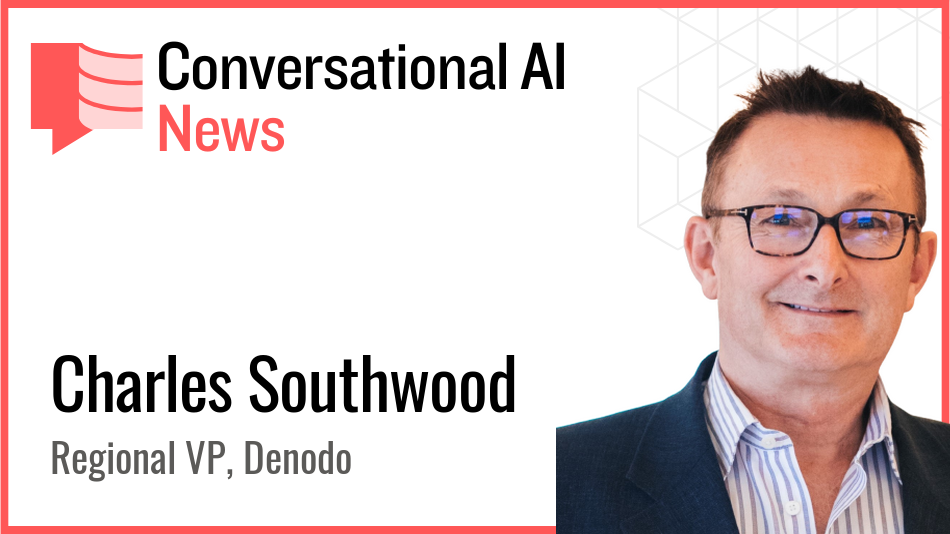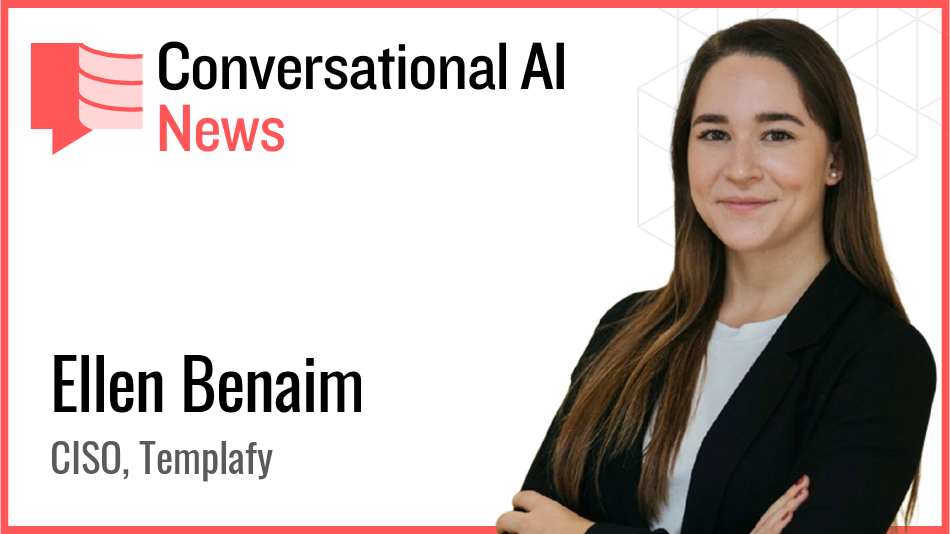How Martin Neale's ICS.AI is Transforming Public Services with AI

Today we're meeting Martin Neale, Founder and CEO at ICS.AI. They specialise in delivering AI solutions that transform public sector services.
Over to you Martin - my questions are in bold:
Who are you, and what's your background?
I'm Martin Neale, CEO and co-founder of ICS.AI, a company dedicated to delivering AI solutions that transform public sector services. Driven by a deep belief in AI's potential to significantly improve lives, I've spent my career harnessing emerging technologies to make a meaningful difference.
I moved to the UK from Jamaica at age 12, quickly adapting to my new environment and discovering a passion for technology that has guided me ever since. At 55, defying the typical image of a well-funded entrepreneur, I made the bold decision to cash in my pension and risk our home and family stability to launch ICS.AI and pursue this vision.
With over 35 years of experience and a track record of bringing 22 innovations to market, I'm proud of what we've built. Our team combines extensive expertise in AI, data science, and public sector consultancy, driven by a shared mission to enhance public services, making them smarter, more accessible, and more impactful for the people who rely on them across the UK.
What is your job title, and what are your general responsibilities?
As the CEO of ICS.AI, my core responsibility is setting the strategic direction of the company and leading our team as we deliver AI-driven solutions that transform public sector services.
My role is a balance of high-level strategy and hands-on leadership, from working closely with clients and partners to ensure our AI solutions address real-world challenges, to guiding our product roadmap and keeping us at the forefront of practical, effective AI innovation.
Can you give us an overview of how you're using AI today?
ICS.AI is among the UK's fastest-growing private companies, driving AI transformation to enable the public sector to reimagine service delivery with secure, scalable AI that delivers unprecedented ROI while keeping human connection at its core.
Our vision is to establish ICS.AI as the global leader in generative AI for trusted sectors (local and central government, education, and health). We believe the future isn't AI replacing humans, but AI amplifying human potential. We're committed to continual innovation that enables 24/7 public access to essential services while maintaining meaningful human connections. By delivering transformational ROI with our AI solutions, we're helping create financially sustainable public services that work for everyone, everywhere.
Our latest development is a new SMART: Staff Copilot; a purpose-built all-in-one platform helping council staff to save up to one day per week in productivity savings. Projected to deliver £5 million in savings for mid-sized local authorities, the platform significantly reduces AI adoption costs, cutting purchase expenses by 50% and operating costs by 30% compared to multiple standalone AI tools.
Tell us about your investment in AI? What's your approach?
ICS.AI was born at a pivotal moment. When the UK's public sector faced skyrocketing demand with shrinking resources. Recognised in Parliament by Luke Murphy MP for our transformative work with Derby City Council, ICS.AI exemplifies the innovation driving public sector efficiency.
As the UK Government's AI Opportunities Action Plan makes clear: AI is mission-critical, and ICS.AI is the partner delivering this vision. Our market is substantial and growing rapidly. We serve local and central government, education, and healthcare, working with leading institutions including Hillingdon Council, King's College London, and the Information Commissioner's Office.
Our growth has been remarkable to date, with a forecasted increase of over 100% in FY25. We're scaling rapidly, expanding from 29 to 69 team members this year, with plans to reach 150 next year. We're advancing into agentic AI models and preparing for strategic funding in the next 12 months to scale further.
What prompted you to explore AI solutions? What specific problems were you trying to solve?
The UK's public sector faces extreme pressure, with demand far exceeding available funding. ICS.AI addresses this by helping public sector organisations achieve financial sustainability through AI-driven transformation.
Our most significant differentiator is our sector-specific expertise. While generic AI companies struggle to understand public sector requirements, our solutions are designed specifically for governance, security, and integrated service delivery in regulated environments. This has enabled us to achieve unprecedented results, including £3.9 million in targeted savings for Derby City Council and £5.9 million financial impact for Coleg Y Cymoedd.
Our success stems from being born in AI, built for impact, and leading the way in enabling the public sector to transform service delivery nationwide in a financially sustainable way.
Who are the primary users of your AI systems, and what's your measurement of success? Have you encountered any unexpected use cases or benefits?
Our innovation is visible in our results: 3.9 million AI transactions per year, 40%+ call deflection through AI-powered customer service, and up to 5,800% ROI for clients. Our SMART: platform is the UK's #1 AI Assistant vendor by market share in local government. We processed over 3.9 million self-serve requests last year with a 92% average success rate.
ICS.AI's SMART: Copilot solutions are live with over 20 councils across the UK, including Derby City Council, Hillingdon Council and Telford & Wrekin Council, as well as education institutions such as Durham University, King's College London and Coleg y Cymoedd.
Andy Brammall, Director of Digital & Physical Infrastructure and Customer Engagement at Derby City Council, recently said:
"Our new AI assistants not only allow residents access to a range of council services and information around-the-clock and across multiple channels, but by automating routine tasks they also free up time for colleagues to focus on more complex queries which require human conversation. This aims to provide a more personalised service for our residents, improving service delivery and achieving higher levels of resident satisfaction. We understand not everyone will transact with the council digitally. For those who chose not to, speaking to a human via telephone or face-to-face remains an option and is always supported."
What has been your biggest learning or pivot moment in your AI journey?
Our most significant pivot came with the emergence of Generative AI. After eight years in the field, five of which were focused on NLP technology, Generative AI introduced a transformative opportunity. It wasn't just a technological shift; it redefined the challenges and possibilities across sectors. Within two weeks, we realigned our business to tackle key industry challenges.
For local government, this meant addressing critical challenges like financial sustainability. In education, it involved confronting the existential risks of AI in teaching while building solutions that enhance, rather than replace, the strengths of human educators. These developments will be crucial in addressing the AI adoption gap, the growing chasm between AI's potential and its practical implementation at scale in the public sector.
How do you address ethical considerations and responsible AI use in your organisation?
We take pride in being one of the earliest adopters of the European AI Act, using its framework to embed robust risk management practices into our operations. As a provider exclusively serving the public sector, our solutions must align with strict ethical and compliance standards.
This commitment is evident in our comprehensive DPIA (Data Protection Impact Assessment) infrastructure and a bespoke methodology designed to bridge the human aspects of technology deployment with rigorous monitoring processes. By integrating these elements into a unified programme, we ensure our AI solutions uphold the highest standards of responsibility and ethics.
What skills or capabilities are you currently building in your team to prepare for the next phase of AI development?
To prepare for the next phase of AI, we're focused on building a team designed for an AI-first world. This involves recruiting talent who instinctively understand the opportunities AI creates and making them integral to our growth strategy. That's why we developed an AI launchpad scheme, to bring new talent into the fold.
The scheme is designed for dynamic, creative individuals passionate about AI and interested in developing skills across multiple areas of the business. It offers tailored opportunities to match individual interests and strengths.
Alongside this, AI is also reshaping how we work. Take product development as an example. Traditionally, the cycle involves an idea, market research, a demo, an MVP, and further iterations. It's a process that can take one to two years. But with AI, this has fundamentally changed. Technical capabilities now allow for deployment in a matter of months.
To go one step further, we've converted the traditional structure of a month and compressed it into a week. Our SLT meets every day, we execute insights swiftly and monitor progress. We then have an all hands meeting every week to implement any changes and share feedback. This agile, high-velocity model is what every AI organisation must adopt to fully exploit the technology's transformative potential.
If you had a magic wand, what one thing would you change about current AI technology, regulation or adoption patterns?
While the government has made commendable progress in supporting AI, the pace of change in the public sector remains a challenge. Processes can be slow, and this often delays the adoption of transformative technologies.
For sectors like education, where the stakes are high, I believe AI adoption should be mandated. This is a critical moment to equip young people with tools that can revolutionise learning and better prepare them for the future.
On the technology side, I'd like to see more progress in reducing hallucinations in base AI models. Addressing this would enhance reliability and build greater trust in AI, enabling broader and more impactful use cases.
What is your advice for other senior leaders evaluating their approach to using and implementing AI? What's one thing you wish you had known before starting your AI journey?
My advice is simple: hands on, hands on, hands on. Leaders need to actively engage with AI to discover positive and practical use cases for their organisations. Fear still surrounds AI adoption, often holding teams back. Creating a safe space where people can address their concerns and experiment with the technology is essential for fostering innovation and trust.
One thing I wish I'd known at the start of my journey is just how rapidly Generative AI would evolve. The pace of development has been nothing short of extraordinary, it's something I didn't expect to see within my professional lifetime. Would it have changed my approach? I'm not sure, but it's certainly reshaped how we think about AI today.
What AI tools or platforms do you personally use beyond your professional use cases?
Our company ethos is truly AI-first. We're constantly testing and learning about the latest AI developments, sharing insights and feedback at our weekly all hands meetings.
Personally, I use Claude Enterprise, Gemini Pro, and ChatGPT Pro for conversational AI needs. For creative projects, I also use Midjourney and Runway. Claude, in particular, feels like the Apple of the AI world, it's a consistent and reliable advisor.
What's the most impressive new AI product or service you've seen recently?
The vision capabilities of ChatGPT are excellent. The way it can understand and interpret images alongside text opens up new possibilities for AI assisted creativity and problem solving.
Finally, let's talk predictions. What trends do you think are going to define the next 12-18 months in the AI technology sector, particularly for your industry?
The biggest opportunity lies in AI adoption and there's still a significant gap to close. Interestingly, uptake among younger generations remains surprisingly low, so I expect we'll see some killer apps that really resonate with that audience emerge soon.
Agentic AI technologies will evolve into more practical, useful forms. I also foresee truly personal assistants, like those integrated into Google's Android devices, with deep knowledge of individuals and their needs becoming mainstream.
In the public sector, AI serves very specific purposes, and the journey toward adoption is ongoing. We're proud to lead in developing fit-for-purpose AI solutions that meet stringent security and confidentiality requirements for these sectors.
Thank you very much, Martin!
Read more about Martin on LinkedIn and find out more about ICS.AI at www.ics.ai.
You can read more about ICS.AI on the Conversational AI Marketplace.














